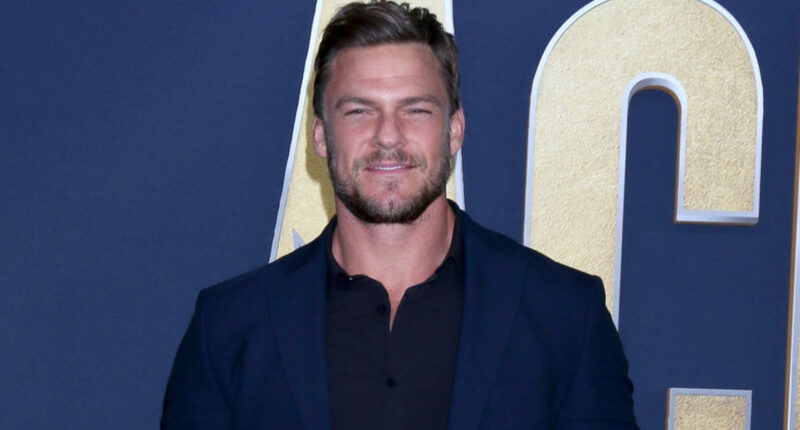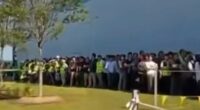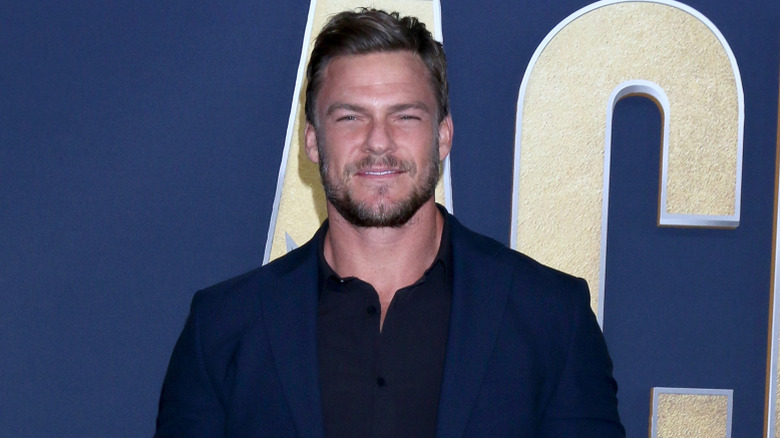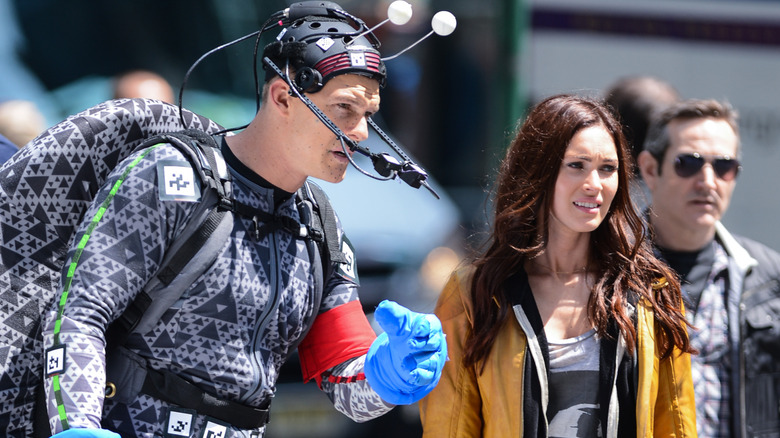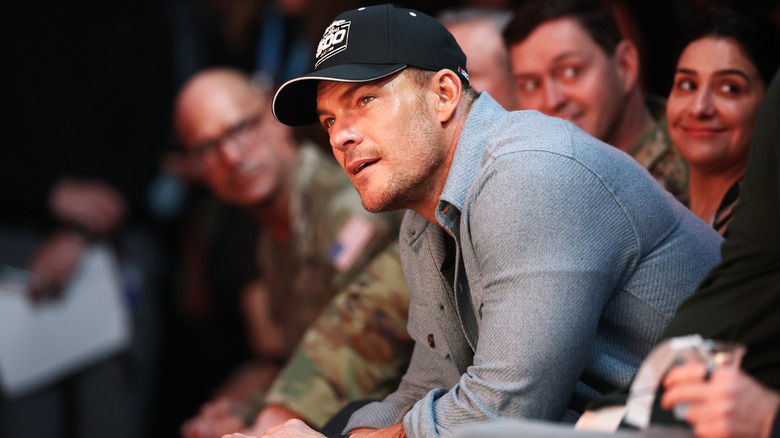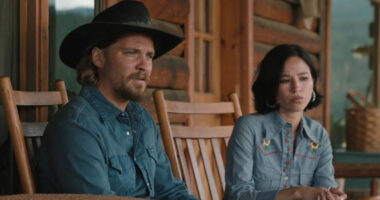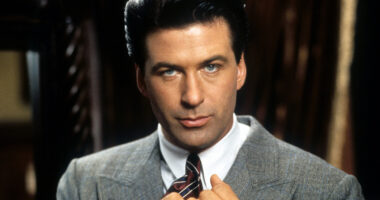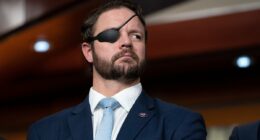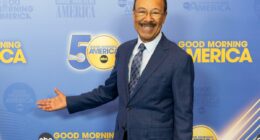Share this @internewscast.com
Nowadays, Alan Ritchson has no complaints. He is the lead in one of TV’s most successful action dramas, “Reacher,” garnering a global fanbase. Frequently, fans list him at the top of their dream casting for comic book characters such as Batman or Venom, and he likely has the opportunity to choose roles as he pleases. However, one factor that may cause him to be cautious about diving back into the realm of comic book superheroes is the challenging experience he endured during the production of Michael Bay’s “Teenage Mutant Ninja Turtles,” where he played the role of Raphael.
Released in 2016, the live-action reboot of the animated turtles (which were in turn based on an underground comic in the 1980s) was a big hit for Paramount. Unfortunately, it didn’t do much for Ritchson’s career because he wasn’t seen on screen; Instead, he performed the entire role while wearing a motion capture suit, and the character of Raphael was created with CGI. Worse still, the making of the film was plagued with problems, and it was ultimately a nightmare for the actor who felt betrayed on multiple levels.
“[‘Teenage Mutant Ninja Turtles’] made me hate life so much, so much,” Ritchson told Collider. “They were so bad to us, and they broke so many promises … I said no, I didn’t want to do it because I’m going to waste years of my life, the best years of my career, on something that nobody’s even going to know that I’m a part of.” Thankfully, Ritchson still got his due, but it took several more years for his breakout in “Reacher.”
Motion capture tech proved to be a nightmare for Ritchson
Since the earliest days of CGI, many actors have bemoaned the excessive use of blue screen technology that often puts them on empty soundstages, forcing them to use their imagination alone to perform a scene. But once CGI was being used to create entire characters, it meant the use of motion capture technology, which proved to be a difficult experience for Alan Ritschson on “Teenage Mutant Ninja Turtles,” but not for the reasons you might think.
After initially saying “no” to the role, producers found a way to convince him with vague assurances he’d be front and center, and that it would be a big benefit to his career. They even went so far as to promise Ritchson that he would be more than just “a guy in a mask,” more than a mere performer acting out fight scenes.
“They’re like, ‘No, no, this is a whole new, live-action, one-to-one, you move, they move, you’re just as much a part of this as anybody else,” he recounted to Collider. “When it comes time to get you out there, you’re going to be in every country in the world, premieres all over the place. We’re really going to get you out there.'” According to Ritchson, almost everyone who was offered the part turned it down, and the studio’s lowball offer – one he begrudgingly accepted, in no small part because of the enthusiasm of his young son — was a big reason why.
Ritchson butted heads with Parmount over the film’s promotion
In the early 2010s, Alan Ritchson was struggling for work, but signing up for a major comic book franchise had the potential to reignite his career. He was playing one of the lead roles in “Teenage Mutant Ninja Turtles,” and working under one of Hollywood’s biggest directors in Michael Bay. Surely, the hope was that getting top billing and getting attention from the media on the press tour and the red carpet would get him the kind of attention that helps young actors become superstars. But he quickly found that the studio was more concerned with the bottom line than doing right by their cast.
“I still have emails that I sent to the president of Paramount because not only would they refuse to allow us to do any press, to talk to people, [but] we found out after the fact that they told people we were refusing interviews, and it wasn’t true,” the actor said. “They didn’t invite us to the premiere.” Hidden under CGI, Ritchson wasn’t recognizable in the film, and the movie’s marketing didn’t even use his name, leaving him out in the cold with a paltry paycheck to boot.
Ritchson also recounted how the studio used contractual loopholes to avoid paying them for additional shooting and refused to let him out of his contract when the sequel came around. Thankfully, “Teenage Mutant Ninja Turtles: Out of the Shadows” had very few awesome moments; it was a flop that ended the series and effectively freed Ritchson from a role he disliked.
